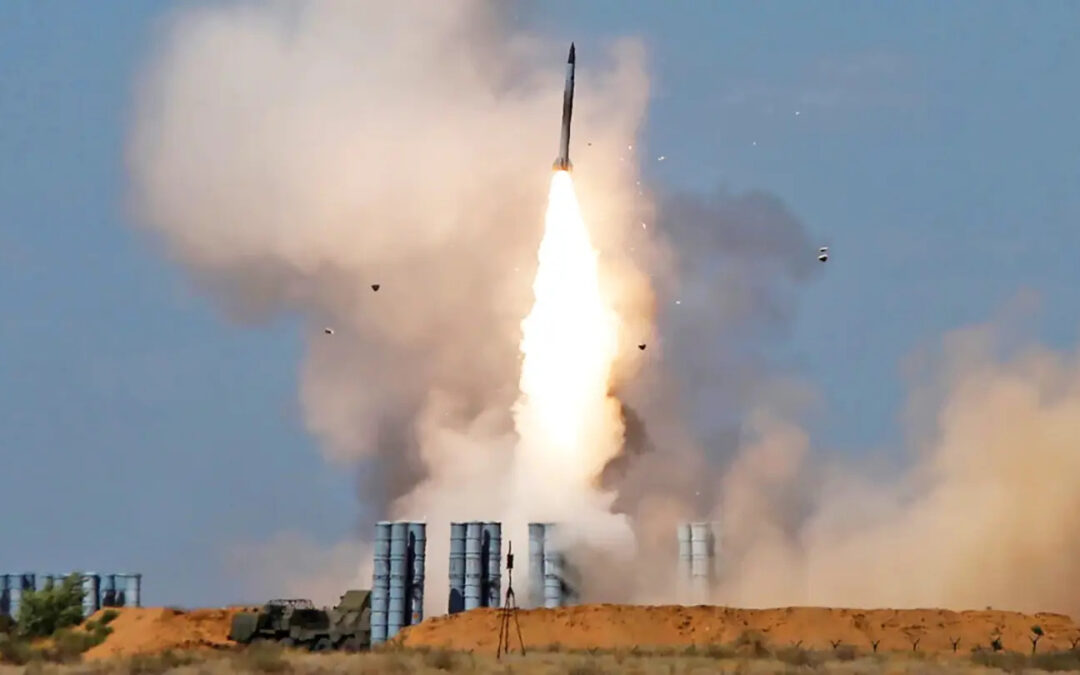The missile that caused yesterday’s explosion in Poland near the border with Ukraine and killed two people was “unlikely” to have been fired from Russia based on its trajectory, says US President Joe Biden.
Poland’s foreign ministry last night confirmed that the missile was “Russian-made”. Subsequently, Polish President Andrzej Duda also announced that it was “most likely Russian-made” but that there is “no conclusive evidence at this time as to who launched the rocket”.
That language left open the possibility that it could have been an S-300 surface-to-air missile – part of an air defence system developed in the Soviet Union – in possession of Ukraine, reports the Guardian. This assessment was echoed by Estonia’s defence minister, Hanno Pevkur, quoted by ERR.
Three US officials speaking anonymously to Associated Press said that their preliminary assessments suggested that the missile had been fired by Ukrainian forces in response to the huge wave of Russian attacks yesterday.
Last night, Biden convened an emergency meeting of the leaders of G7 countries – Canada, Italy, France, Germany, the UK, the US and Japan – attending the current G20 summit in Bali.
European Commission President Ursula von der Leyen, European Council chief Charles Michel and the prime ministers of Spain and the Netherlands – Pedro Sánchez and Mark Rutter – also attended.
Afterwards, Biden said that there had been “total unanimity among folks at the table” about how to respond, reports CNN. “We agreed to support Poland’s investigations into the explosion… and we’re going to make sure we figure out exactly what happened.”
We also reaffirmed our continued readiness to hold Russia accountable for its brazen attacks on Ukraine, even as the G20 meets to deal with the wider impacts of the war.
And we all express our condolences to the families of the victims in Poland and Ukraine.
— President Biden (@POTUS) November 16, 2022
Last night, Poland’s government announced that, following talks with NATO Secretary General Jens Stoltenberg, Warsaw is ascertaining “if there are grounds to launch the Article 4 procedure”.
Article 4 of the NATO Treaty states that “parties will consult together whenever, in the opinion of any of them, the territorial integrity, political independence or security of any of the parties is threatened”. NATO ambassadors are due to meet this morning for talks.
Moscow has denied responsibility for the incident. Russia’s defence ministry claimed yesterday that the weaponry involved in the strike is not Russian and accused “Polish mass media and officials of committing deliberate provocation to escalate the situation”.
PM @MorawieckiM: I appeal to all compatriots to remain calm, to be extra cautious of attempts of disinformation. Now, in this hour, especially in such an hour, in such days, we must be together. We are safe together. We won’t get intimidated. We are strong together.
— Chancellery of the Prime Minister of Poland (@PremierRP_en) November 16, 2022
Both Duda and Poland’s prime minister, Mateusz Morawiecki, last night appealed for calm and caution. “We must be guided by restraint and prudence,” said Morawiecki. “Let’s not be manipulated… We must rely solely on the facts…In these difficult moments, we must show unity.”
Polish investigators are now working to ascertain the causes of the explosion. Duda said that Biden had pledged to send US experts to assist the investigation.
US Defence Secretary Lloyd Austin spoke with Poland’s defence minister, Mariusz Błaszczak, overnight, assuring him of “the ironclad commitment of the United States to defend Poland and… assist Poland in any investigation of the incident”.
I spoke today with Polish Deputy Prime Minister @mblaszczak on today’s reported missile strike in Poland and assured him of U.S. resolve to defend Poland and NATO. #WeAreNATO pic.twitter.com/QjQ6cjoOHd
— Secretary of Defense Lloyd J. Austin III (@SecDef) November 16, 2022

Daniel Tilles is editor-in-chief of Notes from Poland. He has written on Polish affairs for a wide range of publications, including Foreign Policy, POLITICO Europe, EUobserver and Dziennik Gazeta Prawna.




















